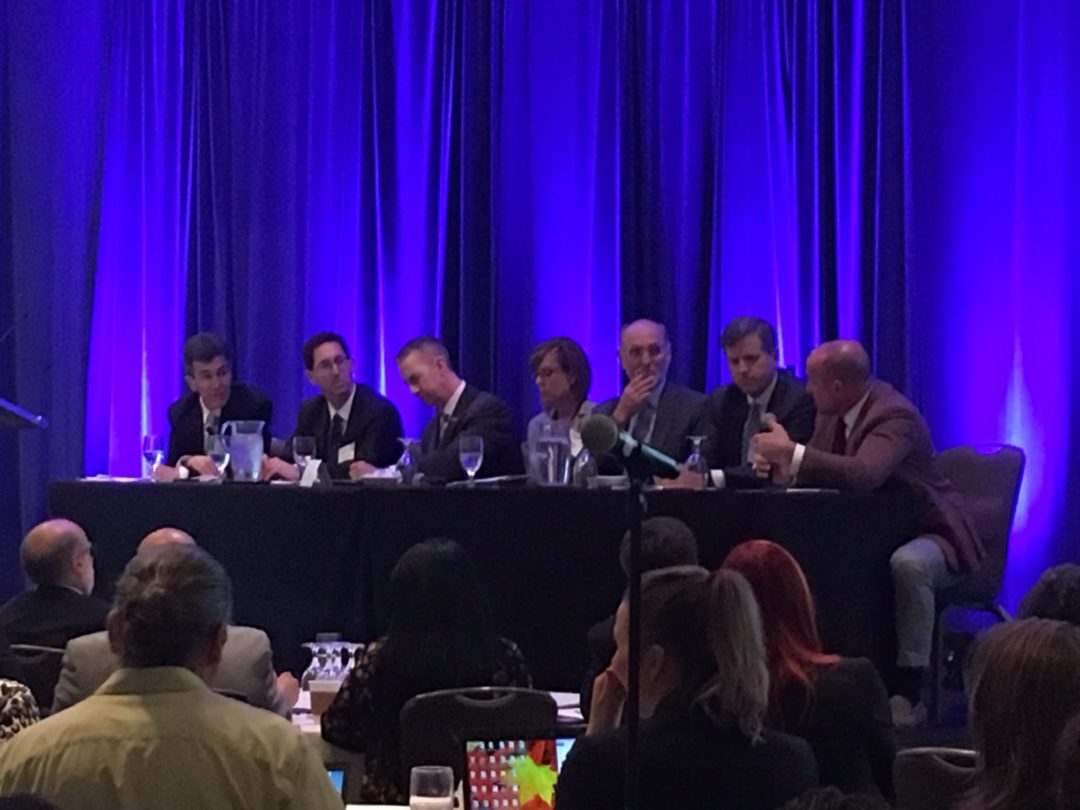
CBD At the Dietary Supplements Regulatory Summit: FDA "Has No Policy of Enforcement Discretion"

It came up within ten minutes of the summit beginning; Ricardo Carvajal mentioned it in his opening reflection on DSHEA. Ashish Talati had half an hour to talk about CBD in the afternoon, as best as he could given the legal quagmire. His tips were to stray towards full-spectrum or broad-spectrum hemp: “Epidolex, the CBD drug approved by the FDA, is pure CBD,” he said. “So while enforcement isn’t widespread, and we don’t know what the end legislation will be, it’s less risky to work with full-spectrum than it is to work with CBD isolate.” And when working with full-spectrum, keep documentation about the strain of hemp your oil comes from. If the amount of CBD in the oil is the amount naturally produced by the hemp, Talati said, whether that amount is 3% or 10%, then you can make the argument that it's hemp oil—but what data do you have that the amount of CBD in the product is naturally occurring?
Talati also touched on claims: Making the claim that a product is THC-free, he said, isn’t a great idea. Those who take it might not pass a drug test, and he noted that class-action lawsuits are being brought to court by people who lost their jobs over a failed drug test due to detectable THC in "THC-free" products. In terms of function claims, he says that “context and qualifiers make the difference.” For instance, there’s some data regarding the endocannabinoid system—so “supports the ECS” is a safer claim than “reduces stress.”
The final presentation, theDietary Supplement Trade Associations Panel with FDA's Steven Tave, brought forth competing opinions. Steve Mister, president and CEO at the Council for Responsible Nutrition (CRN), said: "The first thing to deal with regarding CBD isn't safety, it's a definitional issue. Is it a supplement or isn't it, is it a food additive or isn't it? Do you grant an economic monopoly to a drug company, or to an entire publicly accessible supplement industry? Let it be lawful, then let businesses submit NDIs and prove safety. Trying to establish safety before even deciding whether or not it's legal is going about it the wrong way."
Larisa Pavlick, VP of global regulatory & compliance at the United Natural Products Association (UNPA), argued for more regulatory oversight. "Nothing is going to stop the CBD train," she said. "There needs to be a pathway for these products to get to market, and a method of regulating them. How do we look at the chemical profile, at the terpene profile? If the product is manipulated to change the chemical profile, it should need a separate NDI."
When Tave got his turn to speak, he opened with praise: "The industry has addressed this exactly the way FDA would want responsible industry to address it," he said. But, he added, “FDA does not have an enforcement discretion policy with regard to CBD." He noted that, in supplements or food, CBD is still very much illegal.
This is apparently directly contrary to a statement madein Marchby outgoing FDA commissioner Scott Gottlieb, who told Congress that FDA was “using enforcement discretion,” only taking action against CBD products making “over-the-line claims.” Dr. Gottlieb's statement created Industry-wide confusion regarding what counts as an “over-the-line” claim, not to mention worries about enforcement on a state-by-state basis: The New York Times reported that a North Carolina woman who used CBD oil for her arthritis, as recommended by her doctor, was arrested in Disney World, in Orlando, Florida, where hemp is technically illegal but officials haven’t yet decided whether or not federal law trumps state law.
Panelists at the DSRS requested that Tave explain why FDA’s policy differs from what Dr. Gottlieb said, at which point Tave said: “I wish Dr. Gottlieb had chosen his words more carefully on that occasion, and I think he does too. We don’t have the resources to address every unlawful ingredient or action, so we are prioritizing, but that doesn’t make it ok.” He explained that Dr. Gottlieb didn’t meandiscretionin the political way, but in the basic sense that, on a daily basis, the FDA has to decide what warrants the use of its resources, and CBD does not.
Tave ended with a warning: "Don't look to FDA to save you from State action against CBD."
For more on the DSRS, keep an eye on WholeFoods--further coverage to come.

The editorial team at WholeFoods Magazine has decades of experiences reporting on natural products industry news, trends, and more. This national, monthly business-to-business magazine has been published continuously for nearly 40 years (the magazine was founded in 1977, and has been owned by Wainer Finest Communications since 1984). It is the longest-tenured media outlet of its kind in the natural products industry. The editorial focus at WholeFoods Magazine is, and always has been, on informing and educating members of the natural products industry.
The Magazine
Information
About Us
NOTE: WholeFoods Magazine is a business-to-business publication. Information on this site should not be considered medical advice or a way to diagnose or treat any disease or illness. Always seek the advice of a medical professional before making lifestyle changes, including taking a dietary supplement. The opinions expressed by contributors and experts quoted in articles are not necessarily those of the publisher or editors of WholeFoods.







